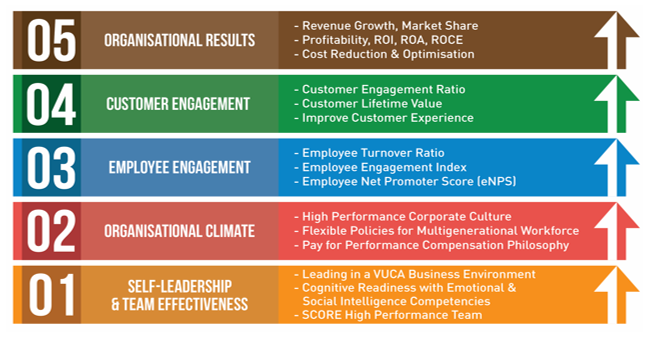In a recent survey 65 percent of respondents agreed that culture is more important to performance than strategy or operating model.

This begs the question then, "How is your company's culture?" According to 80 percent of those same survey respondents, their own cultures must evolve over the next five years in order to grow, be successful and retain their quality employees in the process.
Company Culture Matters In Hiring
The employment environment is decidedly in the candidate's court and employers are scrambling to fill positions while also looking to attract, acquire and hold on to quality employees. And the numbers show that culture is playing a larger role in that acceptance process than ever before.
While salary and benefits still play a significant factor in determining a candidate's decision to accept a job, organizational culture is becoming a more important factor, especially among Millennials. In fact, according to the U.S. Bureau of Labor Statistics, by the year 2030, Millennials will comprise about 75 percent of the workforce.
Before you write that off as media hype, note that a 2018 survey by management consulting company, PricewaterhouseCoopers, revealed that 70 percent of employees indicated they would consider another job offer if it were a more fulfilling job than they currently had. And 33 percent said they would take a cut in pay to do so.
HR managers, who are largely responsible for developing and implementing recruiting and hiring processes, are under pressure to find better employees faster and with shorter time-to-hire. New strides in HR technology is helping to make this happen and to happen more seamlessly, but changing the hiring paradigm of CEOs and other C-level executives is often as much of a challenge as is improving the process.
Company Culture Matters In Productivity
A great company culture is one that, among other things, embodies the pursuit of creating a positive work experience for employees. And a key aspect of this experience is valuing and recognizing workers. In fact, a survey from enterprise software company, Sage Group, revealed that 66 percent of workers held this up as the most important elements of their work life. Bottom line: employees want to be valued and recognized.
And, as businesses find themselves increasingly filled with employees that make up the Millennial demographic, it is essential to recognize that 92 percent of those surveyed believe that they are more productive when their working experiences are positive.
For the employer struggling to embrace this desire, and what it looks like on a more pragmatic level, it's been determined that, for the most part, these workers want to know what their career options might be, what professional development opportunities are offered and what the larger impact of their work has or what they are accomplishing.
Context is important and not just for Millennials. And a strong and positive culture is more important than compensation, according to another study done by CareerBuilder. Individual and corporate productivity improves when the culture and work experience improves.
And so does employee loyalty and commitment.
"Our well-being is directly connected to our fulfillment – the quality of our relationships, our sense of significance from making an impact, and the challenge of growth." - Dr. Britt Andreatta, author of Wired to Grow and Wired to Connect
Focusing on Culture Provides Dividends
An "employee-first" culture does not need to be at the expense of the customer. In fact, the opposite is true: a fulfilled and motivated workforce is more incentivized on a number of levels to be more productive and more engaged both internally and in customer-facing activities and roles.
According to an article by Professor Sattar Bawany,
"It is often forgotten that productivity and the economic rewards that go with it are achieved through the people of an organization. A fundamental rule of organizational survival is to put employees first and develop their abilities and skills by establishing a quality training environment.
We give them understanding, help, trust and respect–which are the drivers of employee engagement. There is growing evidence that the range of abilities that constitute what is now commonly known as emotional intelligence plays a key role in determining success in life and in the workplace. Recent research has uncovered links between specific elements of emotional intelligence and specific behaviors associated with leadership effectiveness and ineffectiveness."

[Image courtesy of HR.com]
Of course, profitability and fiscal dividends should not be the sole driver for culture development and change. But it has been shown that the former has a direct correlation to the latter. As business writer Sarita Harbour notes,
"Though its impact can be seen in various ways, when it comes right down to it, there’s no doubt they’re connected. Company culture has a strong link to productivity in an organization, in a large part because of how it influences an individual’s mindset and resulting engagement at work."
Expert Help for HR Management Processes
Employee development and engagement, building company culture and workforce management can all be part of the responsibilities of a company's HR staff. And oftentimes the tasks and demands can seem overwhelming. This is where having an alternative for your HR management can be highly beneficial.
Another key step in maintaining HR workload, while increasing your company's cost-effectiveness, is to consider outsourcing. A professional agency such as Accuchex can provide much-needed help with Human Resources needs and questions.
Accuchex is a full spectrum Payroll Management Services provider offering expertise in Time Management, Insurance and Retirement issues, as well. Sign up for our free "My HR Support Center" tour.





